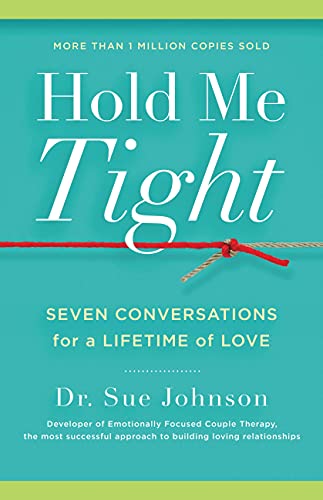Hold Me Tight: Seven Conversations for a Lifetime of Love Link to heading
Summary Link to heading
“Hold Me Tight: Seven Conversations for a Lifetime of Love” by Dr. Sue Johnson is a prominent relationship guide that delves into Emotionally Focused Therapy (EFT), which is grounded in the science of adult attachment. The book emphasizes the importance of emotional connection and presents a clear framework for couples to strengthen their bond through seven transformative conversations. These conversations are designed to help partners recognize their attachment needs, identify destructive patterns, and foster secure, lasting relationships.
Review Link to heading
This book has been highly praised for its practical application of EFT principles to real-life relationships, making it accessible and relatable to a broad audience. Dr. Sue Johnson’s expertise as a clinical psychologist and her compassionate tone contribute to the book’s credibility and appeal. However, some readers may find the concepts repetitive or challenging to implement without professional guidance. Despite this, “Hold Me Tight” stands out as a valuable resource for those eager to deepen their emotional intimacy and understanding with their partners.
Key Takeaways Link to heading
- Emotional Bonds: Recognizing and valuing the significance of emotional attachment in nurturing healthy relationships is crucial.
- Patterns of Interaction: Identifying and changing negative patterns in communication can transform the relational dynamic.
- Secure Connection: Establishing a safe emotional environment fosters vulnerability and deeper connection between partners.
- Attachment Cravings: Understanding one’s own and the partner’s attachment needs can mitigate conflicts and enhance empathy.
- Healing Conversations: Structured dialogues can help repair and reinforce emotional bonds.
Recommendation Link to heading
“Hold Me Tight” is highly recommended for couples looking to enrich their emotional connection and navigate relational challenges. It is particularly beneficial for those interested in understanding the dynamics of attachment and committed to fostering a healthier, more lasting relationship. Therapists and counselors might also find its insights valuable for guiding their clients toward more fulfilling partnerships.
